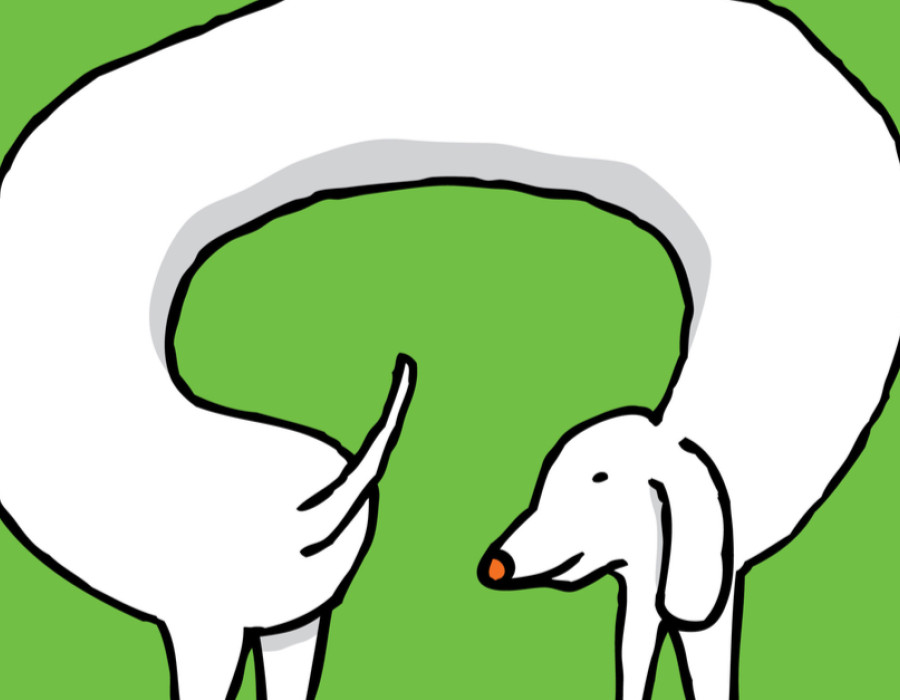
Martin Goodson
The Five Hindrances: 3 | Sloth and Torpor
Exercises in Mindfulness
When apathy or laziness strikes, it can feel like our energy has suddenly been drained away. If however, we can become aware of the heart mind and its effects on the body, we may realise that this energy is still very much with us.
 ©
© Shutterstock
Colourful passions like desire and anger are easy to identify as powerful emotional states but there are other emotions that often appear quite the opposite to their more rumbustious kin and yet are equally strong.
The third of the five hindrances is called ‘sloth and torpor’ in the sense of a reluctance to make an effort. It can be akin to laziness or idleness. However, we need to be careful with words because two things that appear similar on the surface may be quite different underneath.
The key to this hindrance is in that word ‘reluctance’.
On the Wheel of Life, the passions, or fires as they are known, are threefold: delusion, wanting and not-wanting. The last two can be pictured as movements of the body or mind either towards something or away from something. Looked at like this we might see a connection between sloth and torpor and not-wanting. In this case it is the reluctance to engage with something.
The Buddha told a parable along these lines:
A man is shot with a poisoned arrow and his comrades rush to attend to him. Bearing in mind that each moment more poison from the arrowhead is seeping into his bloodstream, it is imperative for him to quickly remove it. However, the man refuses to let his comrades remove the arrow before knowing who shot it, what direction it came from, what tribe the archer belongs to, how the poison was made, what ingredients it contains, the type of bird from which the quill feather came and so on ad infinitum.
As the Buddha remarked, the man would be long dead before all those answers could be brought to him. And yet this is what people do in our training too. We are given instructions for practice, but there may come a point when we begin to ask all sorts of questions and want to know this and that instead of buckling down to make the effort to find out from our own efforts what the Buddha meant about this or that. In other words what appears as genuine questioning may disguise a reluctance to proceed.
It is a moment that will arise for all practitioners at some point along the practice. To understand what is happening we need to investigate the above parable.
Why is it that, given the urgency of the situation, the man shot with the poisoned arrow delays his colleagues from taking necessary action even though it means his own death?
Metal arrowheads have a single point that enters the flesh and two barbed points facing in the opposite direction. These reversed barbs ensure that once the arrow is in the wound that it will not fall out. If you try to pull the arrow it will catch the flesh and in fact to remove an arrow means the wound must be cut open using a knife. The arrow goes in quickly and is painful afterwards but getting it out is a messy, slow and painful process.
Perhaps it is understandable why the man delays, but to the point of endangering his own life? We must understand that the passions are not rational; they are forces of instinct. If that instinct is too strong it can override all other considerations.
As a comparison, there is the example of the monkey-trap. It is given to illustrate the deadly sticky attachment of desire.
The hunter goes into the forest and going to a place where he knows there is a troupe of monkeys unpacks a large piece of fruit from his bag in clear sight of the curious monkeys in the trees overhead.
They watch him go over to a certain tree that has a hole in the trunk and in full view he pushes the fruit into the hole. After this he walks away to a distant point where he is far enough away to be no immediate danger to the troupe but can still see the tree.
After a while, one monkey realising that it is safe enough to go down to ground level reaches inside for the fruit which is easily within his grasp. He tries to pull it out but it is of such a size with his paw around it that he cannot pull it out. Thus, he has a dilemma. He cannot draw out the fruit with his paw; he tries every which way but it just will not come free. The dilemma bites him and it now becomes a matter of sheer will. He WILL get it out and at that point he is hooked and it is the moment for which the hunter has been waiting.
As the hunter gets up and moves towards the tree the other monkeys above give the warning cry of danger approaching! But the monkey at the tree will not let go of the fruit; he must have it! He momentarily turns and sees the danger approaching. All he has to do is to let go of the fruit and in a moment he will be in the safe tree canopy out of the hunter’s grasp.
But the monkey will not let go!
The hunter knows this and goes right up and takes hold of his prey.
The practitioner too meets with strong desire. The practice takes us through some difficult landscapes where the sense of ‘I’ is really going to be challenged. At heart our practice is to get used to just laying myself down. It is this basic attachment to self that the Buddha diagnosed as the root of the problem. When this bundle is put down then the vista widens. It is a curious thing that we can become quite attached to just those things that cause us real harm, but this is the strength and delusive quality of the fires. Hence, they are a hindrance to practice.
Sloth and torpor need to be recognised before they can be worked out. It may seem that there is simply no energy in us but it can be just an appearance. If I must revise for an exam but do not really want to, my eyelids may become heavy as lead. I decide to take a break and pick up the studies tomorrow after a good night’s sleep. To settle myself down I decide to read a chapter of that fascinating novel that I recently started. Two hours later, wide-eyed and full of beans, I am gripped by the story and there is no tiredness in sight. The energy of the heart can take all sorts of shapes. There is genuine tiredness but there is also a tiredness and lethargy that is not a lack of energy but simply a masquerading form that the energy is now taking, as in the example just given. This is merely a ruse to escape from a situation that deep down I fear. We have to get to know the difference. Quite often the evidence is there before our eyes but we need an extra something to help us see it.
It is said that there are only three requirements in Zen training. The first of these is known as the Great Ball of Doubt. It is the doubting of the motives of ‘I’. This means an openness and a willingness to question my convictions, my feelings, and my opinions about things. It allows me to see the place where they arise from. This space around the thought loosens the grip it has on consciousness. Part of insight training is getting to know our own heart as we would get to know a friend.









